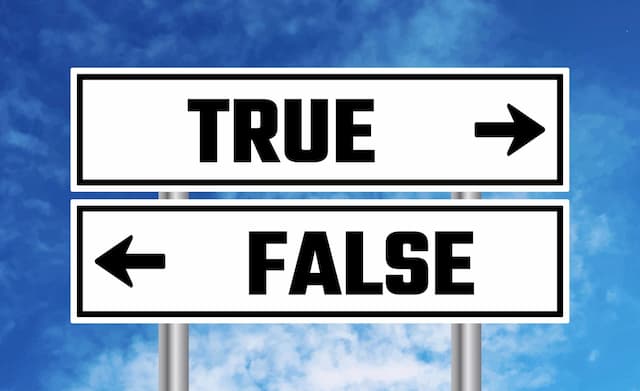PASSOVER in the Bible is celebrated as such in most Christian countries – and Easter does not derive from Ishtar
 Passover is translated “Easter” in English
Passover is translated “Easter” in English
The Greek noun πάσχα (pascha, Strong’s 3957) means (in English) Passover and this is the very name which most countries are using in their respective languages when they celebrate the holiday. Sadly many Christians – usually native English speakers – get upset when fellow Christians choose to celebrate Passover, even though there is no obligation to celebrate Passover with pagan ingredients. Does the Bible say anywhere that celebration of the Passover is not allowed among Christians? Is not the resurrection of Jesus Christ – our Passover lamb – worth celebrating?
Each year when it is getting close to Easter there will always be some native English speakers (I would assume not only Americans) who claim that Christians should not be celebrating this holiday because it is related to paganism (Ishtar) and because Easter bunnies must be involved in the celebration. It is extremely difficult to get them to understand that the Biblical Passover is in fact still called Passover and celebrated as such in most Christian countries. Just because Easter bunnies pop up in America and other English-speaking countries, it does not mean that they do so in all countries. There is no obligation to celebrate the holiday with bunnies, and in fact not even all Americans do. Some call it the Resurrection Day, and that is fine too.
In short (to copy and paste):
Passover is apparently a day that we can still celebrate? (And it’s of course no obligation to celebrate it with pagan elements.) This means that I and many others can continue to celebrate the holiday which is called (and translated) “Easter” in English speaking countries but which most countries have always called “PASSOVER“ in their respective languages. It’s unfortunate that “Easter” has been selected as the name of the holiday in English speaking countries and that some of the native English speakers therefore feel prevented from celebrating the Passover holiday together with the rest of the world – during a certain weekend in Spring. Perhaps calling this holiday weekend Pascha would solve the problem? It’s just strange and unfortunate that the whole world can freely celebrate the Passover (and they can choose to do this without paganism) but Americans and other native English speakers feel that they can’t join due to a name.
Here are som FACTS about the holiday called Easter in English and Passover elsewhere
- The word PASSOVER is found in the Bible. In the KJV the word is found 72 times.
- The first time we come across the word it is in relation to the Exodus and the Jewish commemoration of it – where males had to be circumcised before they could participate (Ex. 12:48) and where a proper sacrifice had to be made. Ever since Calvary, the focus of the commemoration has changed from the Exodus to the crucifixion of Jesus Christ – our Passover Lamb – who offered his life for mankind during a Passover holiday. The Jewish Passover was a foreshadowing of the spotless Lamb of God whose blood would cover the sins of those who believe in him, causing God’s judgment to pass over them.
- Most Christian countries have continued to have Passover celebrations ever since Calvary, albeit not according to the old Jewish traditions (but with a focus on Calvary). The NAME of this holiday is PASSOVER in most such countries (naturally in their respective language).
- Now comes the fact that confuses so many English-speaking Christians: The holiday which is called PASSOVER in most non-English speaking countries, is translated into EASTER in English! We know it is the same holiday because “Easter” is celebrated at the very same day/weekend as the rest of the Christian world where they call the same holiday “Passover” (in their respective language). It is therefore not correct to say “Passover is not Easter”. It is!
- The reason for this language difference is due to Tyndale’s choice to use the word “Ester” in his English Bible translation rather than sticking with the Passover word. John Wycliffe before him (produced the first English Bible in 1382) had translated from the Latin and left the word pascha untranslated and called it pask/paske. The word Ester is Anglo-Saxon and not Babylonian. It was the common word for both Passover and Easter.
- Easter/Ester has nothing to do with Astarte (Ishtar in English), and it is not a safe linguistic method to assume that words which might sound alike in the English language are related to each other! You can end up with all sorts of craziness by making such assumptions.
- Just because America and some other countries include Easter bunnies in the holiday, it does not mean that all countries have this pagan element. Sure, there might be other pagan elements involved depending on country, but there is NO OBLIGATION to celebrate the holiday with any such things.
- The Bible does not prohibit anyone from celebrating the Passover (Easter) holiday with a focus on the perfect Passover Lamb. Nor does the Bible teach Christians to talk other Christians out of celebrating it.
Even wikipedia says: “In most European languages the feast called Easter in English is termed by the words for passover in those languages and in the older English versions of the Bible the term Easter was the term used to translate passover.”
Col. 2:16 Let no man therefore judge you in meat, or in drink, or in respect of an holyday, or of the new moon, or of the sabbath days:17 Which are a shadow of things to come; but the body is of Christ.
Each year at the time of the Passover, children ask their parents why they are celebrating it (see Ex. 12:24-27; Deut. 6:20-23) and that continues to be a wonderful fact even today even if Calvary is the focus rather than Exodus (they are intertwined). Children (and adults) will continue to ask questions such as “Why are we off from school/work today, and why are all the stores closed?”, “Why do we celebrate Easter?”, “What is Good Friday and what happened on the first Good Friday?” Why did Jesus die for the world?”, “Why did he have to suffer on the cross?”, etc. These questions are often the cause of further discussions about the Bible, and if Christians are present they have a great chance to spread the gospel. Also in secular countries JESUS CHRIST is the focus, and Christian communities do not have to pay a dime to let his name be spread around the country through radio, TV, and other news media. This is done totally free of charge.
Believe it or not, but despite that the name of Jesus Christ is spread freely in so many secular countries during Easter, the Ascension day, Pentecost, Christmas, etc, there are Christians (English-speaking) who are not happy about it! They would prefer that most of these days immediately ceased to exist because they are convinced that they are pagan and that God does not like them. Let us assume for a minute that the Christmas celebration was “pagan” a few hundred years ago (which is not a fact). Would God really be upset if we eliminated this pagan holiday by placing a Christian holiday in its stead? Would he have preferred if we let the pagan holidays be, and if we avoided new Christian celebrations? Where is that verse in the Bible, where God dislikes seeing Christians commemorating the birth of Jesus, the crucifixion, the resurrection, etc?
Or do they perhaps suggest a scenario which is a total utopia, where Christians gather in churches totally free from all falsehood, where Christianity is spreading like crazy, etc? Is the best way to reach this goal to get rid of Passover (Easter), Christmas, etc? Would that be the great starting point to reach a higher level? Unfortunately it is quite possible that they will get what they want in the near future when we get closer to a world government, and where eliminating all religious holidays will be one step on the way. In that way Jesus Christ will be an even more forgotten name. Let us be thankful for each year that we have our Christian holidays intact.
Another article about Easter.








